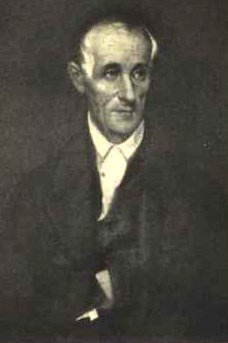
and NOT a fan of Rational Reconstruction (image credit)
What, if anything, is wrong with with the strategy of Resolution through Rational Reinterpretation? And why are most theologians so cold towards this strategy, while most Christian philosophers love it? Consider this quote by Moses Stuart on one of Leibniz’s takes on the Trinity:
The celebrated Leibniz was requested by a Loefler, who had undertaken to refute the writings of a certain English Antitrinitarian, to give him an affirmative definition of the persons in the Godhead. He sent for answer the following: – “Several persons in an absolute substance numerically the same, signify several, particular, intelligent substances essentially related.” On farther consideration, he abandoned this, and sent a second, which was, – “Several persons, in an absolute substance numerically the same, mean relative, incommunicable modes of subsisting.”
If Leibniz actually understood this, I believe he must have been a better master of metaphysics than any person who has ever read his definition. In fact, he does not himself appear to have been satisfied with it; for, not long after, he wrote as follows: – “We must say, that there are relations in the divine substance, which distinguish the persons, since these persons cannot be absolute substances. But we must aver, too, that these relations are substantial. At least, we must say that the Divine Persons are not the same Concrete, under different denominations or relations; as a man may be, at the same time, both a poet and an orator. We must say, moreover, that the three Persons are not as absolute substances as the whole.”
This is somewhat better than either of his former attempts, inasmuch as it is confined principally to description of a negative kind. Yet, after all, I obtain by it no additional light upon the subject which is important. (Channing vs. Stuart on the Trinity and the Incarnation, part 2, pp. 37-8, emphases added)
Leibniz, by the way, was a very great metaphysician and logician (and more). But Leibniz’s new-fangled (as of the late 17th c.) take on the Trinity is something, arguably, that only a metaphysician could love. Stuart, a very smart man (and practitioner of what I call Mysterian Resistance), looks at Leibniz’s words and pretty much draws a blank. I, a philosophy professor who works on philosophy of religion and early modern philosophy, couldn’t do a whole lot better. Further, it is not clear that Leibniz’s claim that relations can be substantial is consistent with his own views about relations and substances, as this recent book mentions. (pp. 157-8) So if Leibniz has scored any victory here, it’s one that pretty much only he could appreciate, and maybe not even him! (This is why he tries out a lot of other moves as well…)
I should hasten to add, though, that a few rational reconstructions do end up being fairly popular, at least within certain highly educated circles. This, then is one problem with Resolution through Rational Reconstruction: it takes quite a lot of tutoring for people to understand the claims being made, and many, be they laymen or theologians (or even other philosophical theologians) just don’t understand the new version of the doctrine being offered. Or maybe they do understand it, but find it about as problematic as what we started with. (Stuart’s confession that he “gains no additional light” from Leibniz’s speculations could mean either or both of these.)
But the difficulties don’t stop here.

Pingback: trinities - Dealing with Apparent Contradictions: Part 10 - Why Care About Rational Reinterpretation? (Dale)
Hi Scott – there’s little new in Leibniz, at least theologically and metaphysically. He just tries about every strategy in the medieval playbook, although adds some metaphysical twists of his own. He brings a new level of clarity and logical sophistication, though, largely spurred on by the fidestic and skeptical Bayle. And he’s got a kind of epistemic sophistication I don’t see in the medievals. He’s a very wily apologist, not unlike van Inwagen in our own day. Very interesting stuff. I’ll be writing up some stuff on Leibniz on mysteries, God willing.
Pingback: trinities - Dealing with Apparent Contradictions: Part 9 - Rational Reinterpretation, cont.(Dale)
I’ve not read Leibniz on the Trinity– I wonder whether he adds anything significantly new to the discussion–from the above definitions of ‘person’ it sounds a lot like Augustine, or Richard of St. Victor, or Aquinas….
Any guess as to whether ‘absolute substance’ there means (Aristotle’s) 1st substance?
Pingback: trinities - Dealing with Apparent Contradictions: Part 7 - Resolution by Rational Reinterpretation (Dale)
Comments are closed.